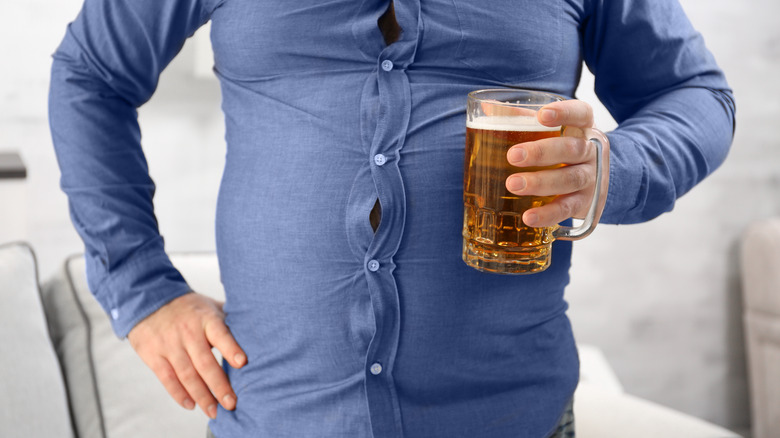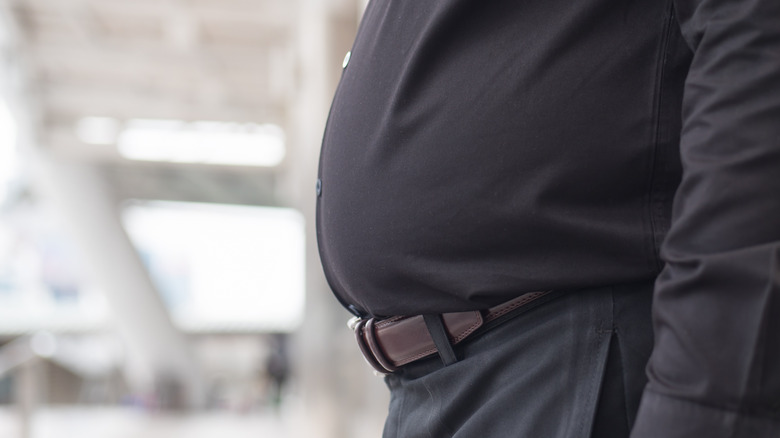What Is Beer Belly And How Can You Get Rid Of It?
If you have a beer belly, you're not alone. That excess fat that droops over the belt line — sometimes also referred to as a spare tire or beer gut — is common among adults, especially men, as they get older (via Cleveland Clinic). While belly fat is often associated with beer, too many calories of any kind (whether from alcohol or junk food) can lead to increased abdominal fat. An average beer contains about 150 calories, so they can quickly add up.
Beer bellies seem to affect men more than women. That's because, genetically, women are more likely to store fat in their arms, hips, and buttocks, while men tend to store fat in their bellies. With age, hormone levels decrease for both genders, making it more likely that both men and women will store fat in their midsection. However, women tend to start with smaller bellies.
Beer bellies are associated with a number of health issues, including an increased risk of heart disease, type 2 diabetes, hypertension, high cholesterol, fatty liver disease, metabolic syndrome, and erectile dysfunction. Abdominal fat is also linked to a higher rate of death. People with firmer bellies are at an even higher risk, as this is typically caused by a high accumulation of fat around the organs.
How to get rid of a beer belly
There is no magic fix to get rid of a beer belly. You must commit to a healthy lifestyle and lose weight. A good first step is to focus on a healthy diet consisting of lots of fruits and vegetables, whole grains, lean proteins, and low-fat dairy products (via Mayo Clinic). Limit intake of saturated fats, found in animal products like cheese, butter and meat. It's also best to avoid processed foods and sweetened beverages, sticking to water or drinks with artificial sweeteners instead. Watch your portion sizes even when you're making healthy choices, as calories add up. If you're drinking alcohol heavily, consider limiting your intake or giving it up completely (via Healthline).
Physical activity also plays an important role in weight loss and overall health. The Department of Health and Human Services recommends getting at least 150 minutes of aerobic activity, such as brisk walking, or 75 minutes of vigorous aerobic activity, like running, each week. Strength training is also recommended at least twice a week. If you're trying to lose weight, you might need to exercise more. Talk to your doctor, who can help you come up with a plan to get started and sustain these lifestyle changes.


